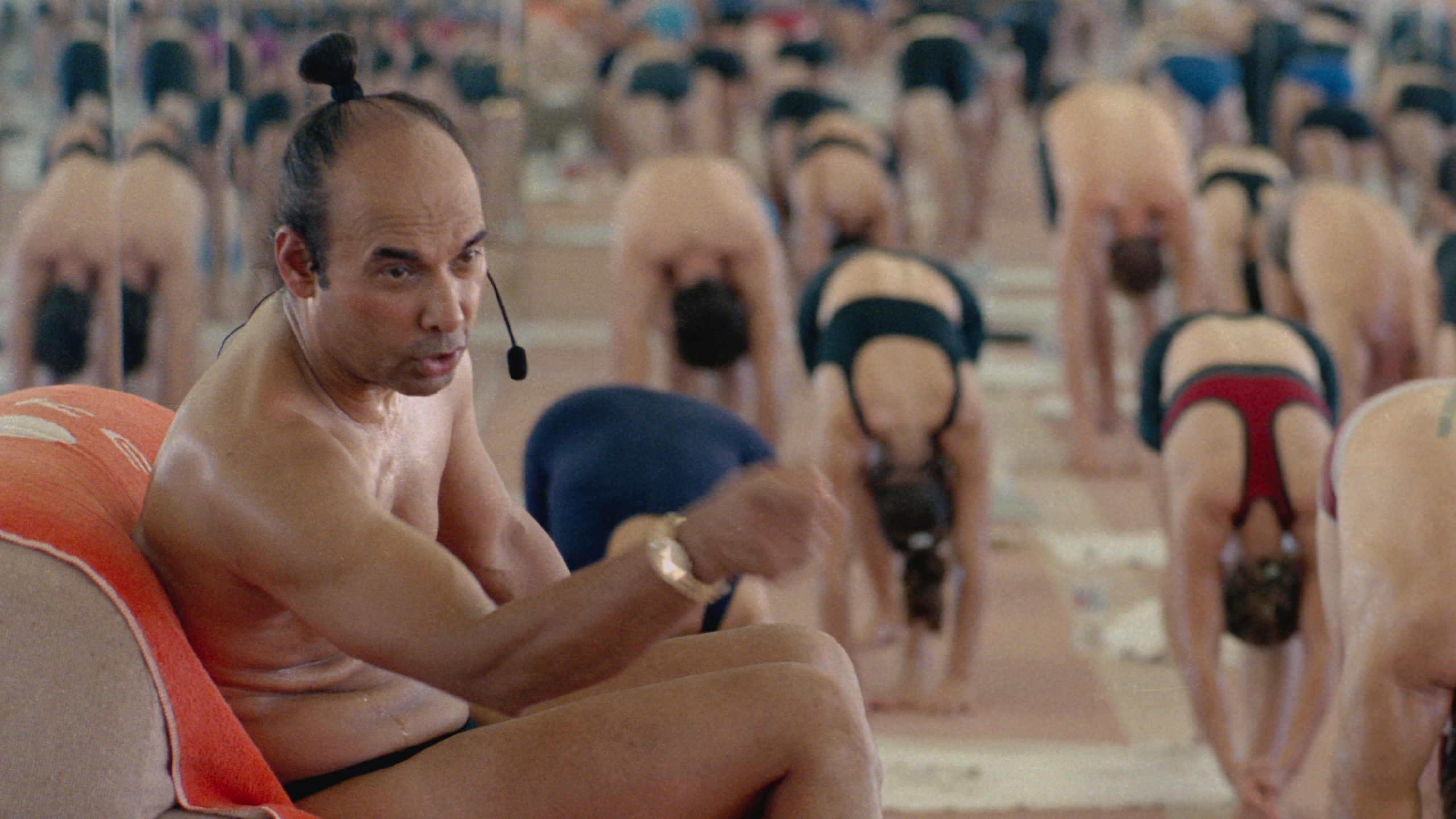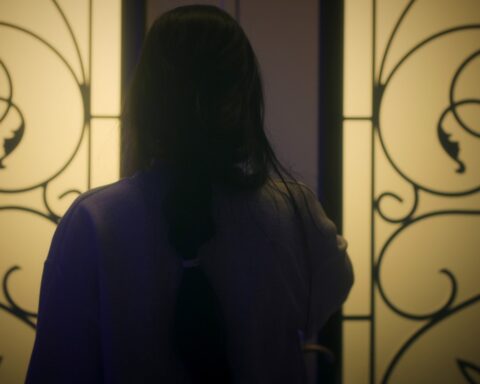Le fond de l’air (White Noise)
(Canada, 78 min.)
Dir: Simon Beaulieu
The beginning of_Le fond de l’air_ is meant to be painful to watch. Bombarded by rapid-fire flashing lights, snippets of random scenes from human history, and aggressive music, director Simon Beaulieu bookends his experimental documentary with the first of a series of rather blunt metaphors. Information overload forces the viewer to look away, which mimics a common reaction to the climate crisis.
Aside from these distinct moments at the beginning and end and some thermal camera footage, the bulk of the film consists of meandering GoPro footage. Beaulieu and the NFB/ONF put out a call for volunteers to record their daily lives while wearing a GoPro for what they described as a “playful” film meant to ‘connect people from around the world.’ At times, the film was also described as being about ‘our perception of reality in the age of social networks.’ The resulting film appears to have departed from both of these initial intentions, being very clearly about environmental concerns.
The film’s approach to conveying climate anxiety is effective but lacks nuance. A lot of this comes down to repetitiveness. Long stretches of mundane GoPro footage inevitably include a lot of repetitive actions, such as looking at one’s phone, going to work, cooking food, and walking on the street. It is clear that much of the footage was collected in Montreal, from recognizable landmarks, signs, and brands, which aggravates the feeling of repetition. Sirens and unnerving ambient noises play over these scenes to heighten the feeling of anxiety, to some effect.
Snippets of media broadcasts describing our impending doom, in French and English, are also played over the first-person scenes of mundane daily activities. Although this combination is effective in replicating the day-to-day experience of having ecological apprehensions at first, it becomes tired. A fragment of an earlier broadcast is recycled later in the film. One could argue that the repetitiveness is yet another technique, meant to mirror the masses going through the motions as climate change looms, but it is frustrating to sit through a feature documentary and not experience effective attempts at depth, especially considering that the environmental crisis is of such concern to so many people in the world.
There are clear attempts to break up the mundanity of the GoPro footage and add meaning, but some of them fall flat. Aside from the flashing scenes at the beginning and end, Beaulieu takes the film in an even stranger direction. Interspersed throughout the regular footage, we see an ominous figure appear in scenes of daily life. The figure is a regular dude in plainclothes, wearing a semi-transparent mask, which appears to be stalking the GoPro-wearer while they are out in public. As the film progresses, the man begins to chase and eventually tackle “us.” The man seems to represent climate change itself, a problem that cannot be ignored and will eventually catch up to us. This comparison feels almost childishly simplistic in both concept and execution, adding a predictable horror-movie twist to the increasingly bizarre and fragmented documentary.
A successful attempt to diversify the visuals comes in the form of a thermal camera. Shown closer to the ending of the film, we see black-and-white human blobs ebb and flow in a way that is both alien and familiar. The nature of the thermal camera invites a wider variety of interpretations, unlike the rest of the film, which seems to spoon-feed us easy metaphors. The thermal camera points to our commonalities, as we all look the same under its lens. Although the climate crisis looms and we are running out of time, the technique shows us that we are still alive and can do something about it. In these moments, the film is at its strongest.
Overall, Le fond de l’air captures the visceral feeling of climate anxiety well, without doing much else. It could have packed a bigger punch as a shorter film.
Visit the “POV RIDM Hub”: for more coverage from this year’s festival.











